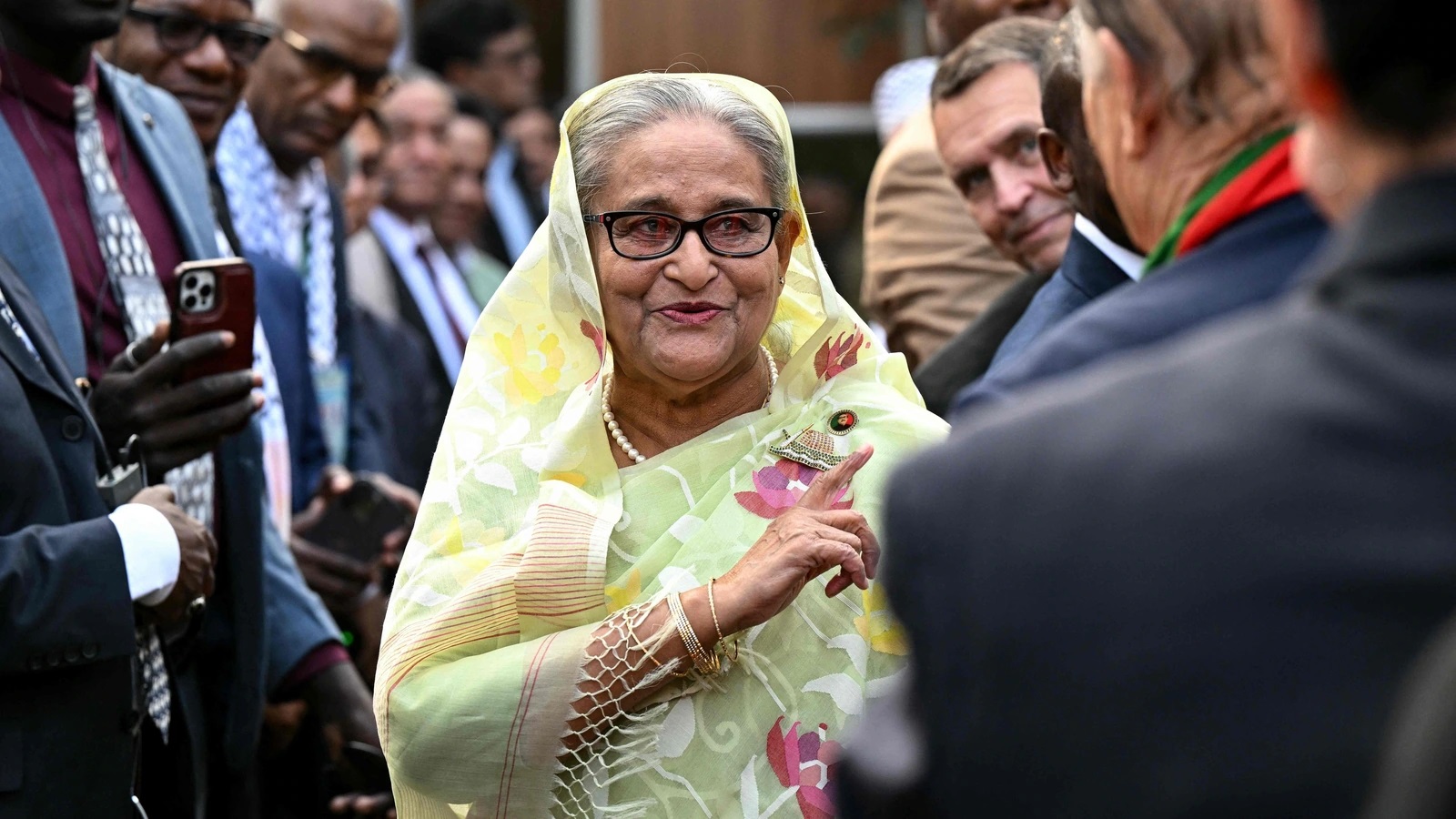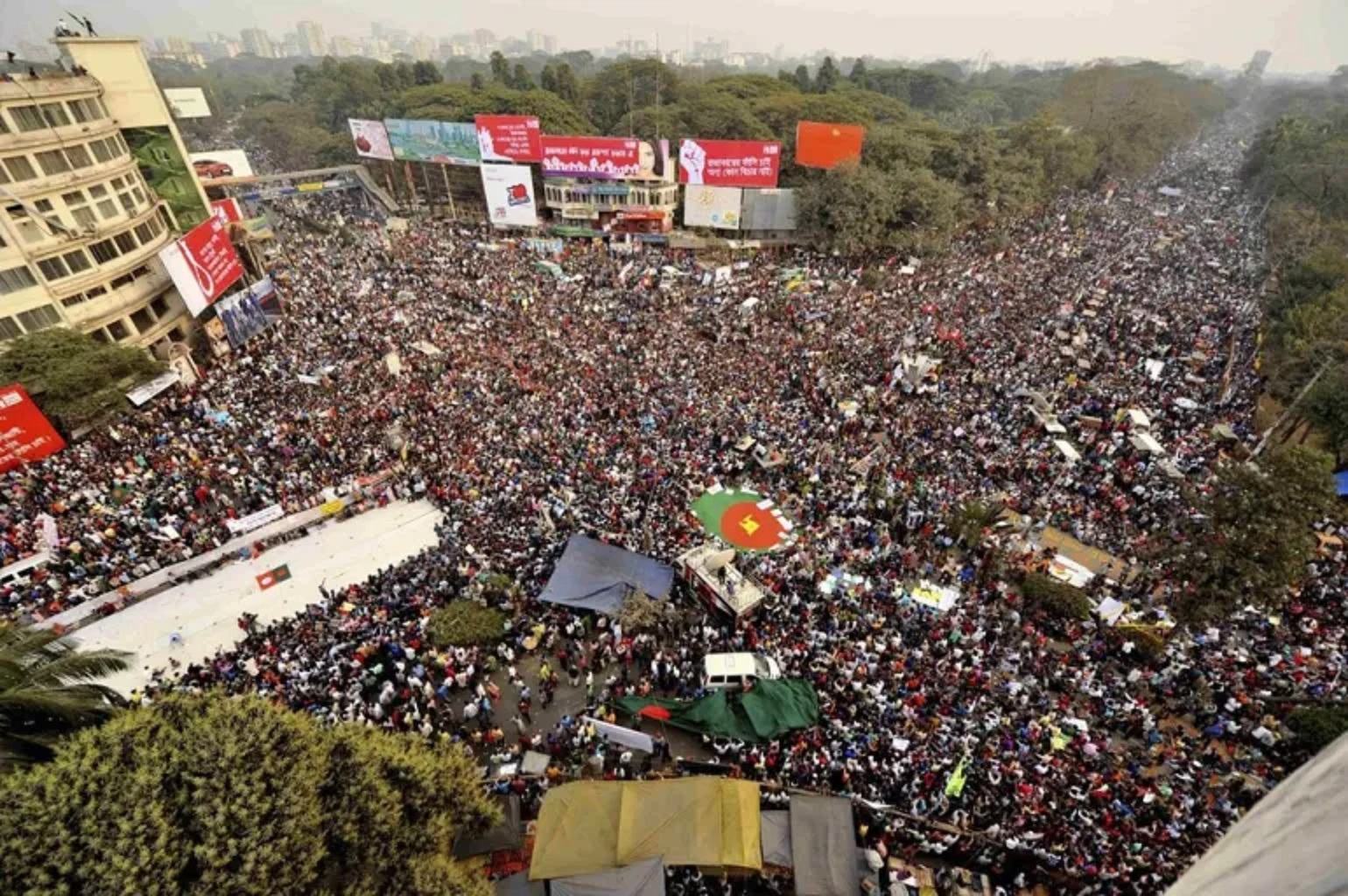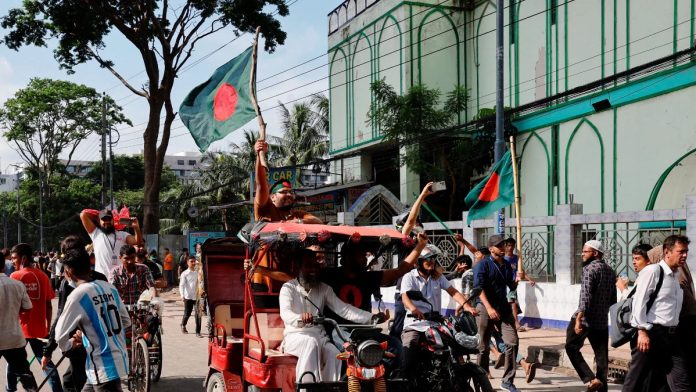- The Indian think tank and the Union Government must be worried about the fast-emerging situation panning out in Bangladesh with the resignation and subsequent departure of Sheikh Hasina as the duly elected democratic Prime Minister. As you are aware, the bilateral relationship between India and Bangladesh with Sheikh Hasina at the helm has been cordial, harmonious, and in line with the security concerns of New Delhi. The bonhomie between Prime Minister Narendra Modi and Sheikh Hasina was visible to all to comprehend the deep friendship developed over the years. Since the Eastern and Western borders with China and Pakistan were always on the boil, the Bangladeshi support for Indian concerns was most welcomed.

PC: Hindustan Times
- However, the rapid disintegration of the democratically elected government in Bangladesh is bound to pose humongous challenges to Indian sensitivities in the coming days. The discord among the youths was building up over the last few months and was looked the other way was quite evident as things unfolded so dramatically in the previous few days. Of course, Hasina sowed the seeds of her downfall posing a huge challenge for India in the bargain. Once a thriving South Asian economy, Bangladesh today looks like a South Asian tragedy. While Sheikh Hasina fled the country, protesters stormed her official residence, the army, via an interim government, took over, and economic problems, worsening for a while, will most likely get worse in the short term.
- Disconcertingly, a Bangladesh in turmoil will also likely force a reset in New Delhi-Dhaka ties that is bound to raise multiple strategic and security questions for the region. To her credit, Hasina’s decade-and-a-half stint in govt had many positives. Her notable achievements included major constitutional reforms that reintroduced secularism as a fundamental tenet of Bangladeshi polity. Trials for war criminals of Bangladesh’s 1971 Liberation War – a hugely popular demand as manifested in the 2013 Shahbagh protests – were undertaken. And Bangladesh saw impressive economic growth that put it on the path to graduating from the Least-Developed Countries group to a developing nation by 2026. This was some welcoming transformation.

PC: Al Jazeera
- Were Bangladesh to continue on this track, it would have emerged as a genuine South Asian star. Yes, ties between New Delhi and Dhaka reached unprecedented levels. Hasina ensured no anti-India group was able to operate from Bangladeshi soil. Connectivity and trade flourished. Transit and trans-shipment, especially to India’s Northeast, became a reality. Bilateral maritime and land boundary issues were resolved. But where Hasina tripped up was in her handling of domestic politics. She decimated the opposition space, even had a bizarre experiment where the designated opposition party was in govt, and ruthlessly went after her government’s critics. This lack of official opposition created a political vacuum that eventually attracted street protests. India has challenges vis-a-vis diplomatic/military/humanitarian, respectively at hand.






